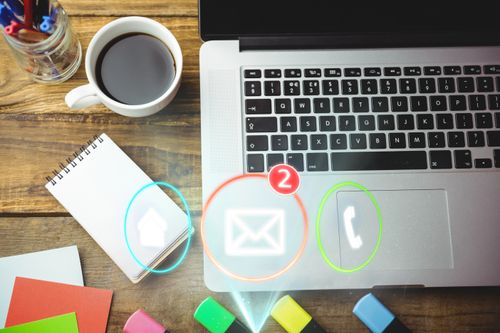With the rise of phishing scams and spam emails, it's more important than ever to check email authenticity. By verifying the sender's identity and ensuring that the email is legitimate, you can protect yourself from cyber threats and keep your personal information safe. In this guide, we'll cover everything you need to know about email verification and validation.
What is Email Authenticity?

Email authenticity refers to the process of verifying the identity of the sender and ensuring that the email is legitimate. This involves checking the email header, domain name, and other factors to determine whether the email is trustworthy or not. By verifying email authenticity, you can protect yourself from phishing scams, spam emails, and other cyber threats.
How to Check Email Authenticity
There are several ways to check email authenticity, including:
1. Check the Email Header
The email header contains important information about the sender, including the IP address, domain name, and other details. By examining the email header, you can determine whether the email is legitimate or not. Look for any suspicious or unfamiliar details, such as an unusual IP address or domain name.
2. Verify the Domain Name
The domain name is the part of the email address that comes after the "@" symbol. By verifying the domain name, you can ensure that the email is coming from a legitimate source. Use a domain name lookup tool to check the domain name and ensure that it matches the sender's identity.
3. Use an Email Verification Tool
There are several email verification tools available that can help you check email authenticity. These tools analyze the email header, domain name, and other factors to determine whether the email is legitimate or not. Some popular email verification tools include Email Checker, Verifalia, and Email Hippo.
Why is Email Authenticity Important?

Email authenticity is important for several reasons, including:
1. Protecting Against Phishing Scams
Phishing scams are a common type of cyber threat that involves tricking users into providing personal information or downloading malware. By verifying email authenticity, you can protect yourself from phishing scams and ensure that you're not giving away sensitive information to cybercriminals.
2. Avoiding Spam Emails
Spam emails are unsolicited messages that are sent to a large number of recipients. By verifying email authenticity, you can avoid spam emails and ensure that you're only receiving messages from legitimate sources.
3. Maintaining Privacy and Security
Email authenticity is essential for maintaining privacy and security online. By verifying the identity of the sender and ensuring that the email is legitimate, you can protect your personal information and prevent cybercriminals from accessing your accounts or stealing your identity.
Conclusion
Checking email authenticity is an essential step in protecting yourself from cyber threats and keeping your personal information safe. By verifying the sender's identity and ensuring that the email is legitimate, you can avoid phishing scams, spam emails, and other cyber threats. Use the tips and tools outlined in this guide to check email authenticity and stay safe online.
Frequently Asked Questions
What is a phishing scam?
A phishing scam is a type of cyber threat that involves tricking users into providing personal information or downloading malware. Phishing scams often involve emails that appear to be from a legitimate source, such as a bank or social media platform.
How can I avoid phishing scams?
To avoid phishing scams, it's important to check email authenticity and verify the identity of the sender. You should also avoid clicking on links or downloading attachments from unfamiliar sources, and use strong passwords and two-factor authentication to protect your accounts.
What is a spam email?
A spam email is an unsolicited message that is sent to a large number of recipients. Spam emails often contain advertisements or other unwanted content, and can be a nuisance for users.
How can I avoid spam emails?
To avoid spam emails, you can use email filters and block senders who frequently send unwanted messages. You should also avoid providing your email address to unfamiliar sources, and use a separate email address for online accounts and subscriptions.



